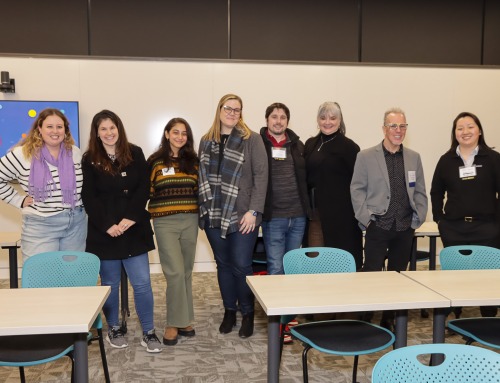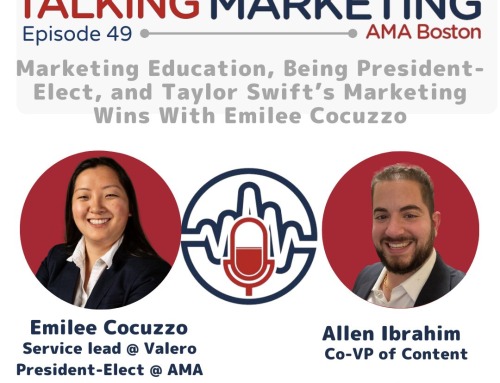- Rob Harvie – Director of Staffing – Direct Hire
- Jennifer Kuchy – Senior Staffing Consultant
- KJ Kozens – Staffing Consultant
Q1: What specific skills are currently in the highest demand for marketing roles?
Rob: Ability to showcase expertise with content marketing strategies. Marketing professionals must have the ability to create, craft and optimize compelling and engaging content to educate and drive communication while increasing brand visibility, loyalty and growth.
Jennifer: Communication, creativity, and technology skills. Having the ability to think outside the box and try different creative approaches.
KJ: Most marketing roles are going to require digital and social media marketing experience, strong communication skills, demonstrated content creation, data analysis, and the ability to manage projects.
Q2: What types of marketing positions are hard to fill and why?
Rob: Digital marketing managers, social media strategists and content specialists. Demand is growing while the talent pool is shrinking. Given the dynamic nature of the industry, skill req’s have changed and some of those skills may not be as available in the market
Jennifer: No one position is harder than the other. It all depends on how flexible a potential employer can be and looking at everything a candidate has to offer
KJ: Traditional marketing roles tend to have the smallest candidate pool as technology has changed the landscape of the profession. There are not a lot of experienced traditional marketers because it is no longer a skill that is required for most marketing positions.
Q3: What factors are involved to cause employers not to find the right candidates?
Rob: Organizations that can’t identify certain skill gaps for in-demand roles are not able to tailor a more proactive and strategic recruiting plan that will allow them to see a more qualified and on target pool of candidates
Jennifer: Not seeing the importance in considering diverse experiences and transferable skills. Employers need to look beyond the resume and recognize the potential in every candidate.
KJ: One factor can be the unwillingness to budge on the requirements for open positions. For example, opportunities requiring direct industry experience can limit the pool of talent and overlook strong candidates with the ability to succeed across all industries
Q4: How are companies adjusting their marketing teams in response to economic changes?
Rob: Many organizations see economic changes as an opportunity to rethink strategies and focus on more data-driven marketing to identify ways to reach their target audience more effectively
Jennifer: They are adjusting it based on the company’s needs, whether it be business development to help drive the business, brand marketing, or social media outreach.
KJ: With the use of automation and data analytics, marketing teams can be more efficient with implementation and execution of their campaigns. Unfortunately, some of these marketing teams are downsizing because of these efficiencies
Q5: How important are certifications(academic) versus practical experience for marketing candidates looking for?
Rob: Many organizations have required an associate’s or bachelor’s degree for marketing roles. Thankfully, more will now consider hiring professionals who lack the degree if they can show relevant and comparable skills for the role they are hiring for
Jennifer: A certification can help you stand out in a competitive job market, and it can help to advance your career down the road.
KJ: Practical experience is more important than certifications because of the required soft skills, problem solving, leadership, creativity, etc., a candidate must possess.
Q6: How has emerging technologies influenced hiring decisions and/or plans to make recruiting more efficient?
Rob: Emerging technologies have given hiring teams the ability to leverage data and streamline processes while creating an overall seamless candidate experience. These technologies have enabled organizations to attract top-tier talent in a highly competitive market.
Jennifer: There are pros and cons to using emerging technologies in recruiting. Pros are it saves time and improves efficiency. The cons may perpetuate unconscious biases and reduce the human element of recruitment
KJ: Recruiting has become more proactive which requires strategic planning to find the best talent. In addition, with video interviews streamlining the process, organizations are trying to get to offer stages quickly in order to not miss on a top notch candidate.
Q7: What are common misconceptions employers have about the current marketing job market?
Rob: They believe they’ll find the perfect candidate who checks every box of their long list of req’s. Orgs have become shortsighted, especially in today’s hiring market, when it comes to hiring based on meeting the number of years and specific skills required
Jennifer: That employers have excess time to make an offer. If you have identified a top contender, move the process along as quickly as possible. Candidates are actively interviewing. The longer the process, the greater the risk of losing your front-runner.
KJ: One misconception is that the market is shrinking. When in fact, because the profession is evolving as a result of technology, organizations are starting to rename their marketing titles and reshape the responsibilities of the role.
Q8: Which marketing positions (i.e repeated postings) are seeing the highest turnover rates, and why?
KJ: It seems that a lot of the entry level marketing specialist marketing coordinator roles require hard skills that can be developed rather quickly for someone and then the position comes a little mundane or boring, for example. And they’re ready to make that next jump into being a little bitmore responsible for content creation, some of the social digital marketing stuff that might go out and be pushed out. And essentially, part of that strategic planning and project management. From my notice, sometimes that can happen rather quickly. So they seem to kind of get into a roll, settle in, and then they jump out of the roll for that next opportunity for growth. And it’s hard for organizations to keep good talent around as a result of that.
Q9: What impact has AI and automation had on types of marketing roles available?
KJ: I mean, I think essentially, it kind of just has evolved, where I think the manpower is kind of still the same, there’s a need for, for the same amount of individuals. But maybe now people that are more qualified, would say, data analysis to look at some of the programs that offer, like the analytics of their software’s, and how well they’re doing in terms of the goals they’re trying to reach and whatnot. And that’s newer to the marketing world. And in terms of, you know, how important that is for individuals to be able to do that at a high level. So, yeah, I think some of the more traditional marketing roles or maybe being or could be replaced by automated, sort of content, and, you know, there may be a time and place for some of that stuff is no longer necessarily because of AI and sounds like out there that those are the rolls out and are first on the chopping block.
Jennifer: I also feel that a lot of the marketing coordinator positions have a lot of administrative tasks in the roles, which is great in the sense that it gives the marketing coordinator a broad view of what marketing entails. If you’re supporting marketing executives, it could be social media focused, or not focused, necessarily, but there could be a lot of different aspects of marketing in a coordinator role. So it also gives them an opportunity to say, Okay, I’m less interested, maybe in the events piece, I’m more interested in the social media piece, more interested in the branding piece. So after a couple of years, once they gain that overall view of what marketing means they’re ready for that next step. And sometimes those opportunities are available internally. But if they’re not, that means that that individual would have to move on in order to further their career and marketing.
Rob: That’s just one more thing to add there. And, and I agree with Jennifer, AI and automation is here to stay and it’s going to be ever increasing. But what that’s going to do is take away those repetitive, you know, day to day tasks and allow, I think, you know, business individuals to have more strategic conversations. They’re going to allow them to have more networking possibilities.
So it’s never going to take the people aspect. It’s never going to take the personal relationship out of business, if anything. It’s going to allow more, I think, strategic conversations both in office internally and externally from a client standpoint.
Q10: How are companies adjusting their hiring criteria to attract entry-level (marketing) professionals?
KJ: I think we’ve seen maybe even across the law jobs as well, again, the need for someone to have those hard software skills when they come in. So assessments, for example, become part of the process and standardizing that, because everyone might say they’re advanced in Microsoft suite, but in reality, they’re not where they need to be. So that can always be something that is difficult for employers to have the time to train on. So that’s something that they need to have, so that they don’t make our hire, and come to find out that his skills are out there. I also think some of the role titles are changing, like data analysis and marketing coordinator. So I think data analysis and the ability to transfer that into strategic planning is becoming more of a requirement in the marketing space than maybe it was before. And changing titles of roles and maybe try to make those roles more attractive to candidates who have that experience.
Q11: We just had graduations; a lot of schools finished. So what kind of advice would you give to newer folks in marketing, and really, in general of this, this market and how to navigate it.
Jennifer: For college graduates to make sure that they’ve had, that they focused on their internships and their summer work, you know, that they’re not just coming out, having worked, you know, various summer jobs that no, don’t necessarily speak to them wanting a career in marketing. You know, a lot of our clients will look for individuals that have done some facet of marketing. And again, that can be all encompassing, it could mean you know, the social media, it could mean, working on proposals, presentations, the event side of things. So I think the more exposed that they are to real practical experience on an internship summer basis, will just, you know, create them to be much more marketable and in a tight market.
Rob: Absolutely. And just to add to that, and I think another great option, that we’re seeing more and more of with Project Based Marketing situations is, is the flexibility to be open to contract work, to temporary work, you know, really align yourself, you know, with with market leaders that are in the talent acquisition world, network, utilize staffing firms, many instances, JohnLeonard, obviously, we do a lot of work with not only, you know, aligning, you know, candidates with job opportunities, but we spend the time from start to finish in terms of preparing that candidate to not only do well in the interview, but we assist and help them, you know, get to offer stage, we help them with thank you notes. You know, we provide quick follow up to the client organization, you know, all at the end of the day, you know, it’s going to put them in the best situation to get that first job.
Q12: Absolutely. And I think what I’m seeing a lot of TikTokers and recent grads or they graduated last year, it’s almost like this is Hunger Games or like applied to 500 600 700 jobs. What kind of advice would you give to them to focus on more quality?
Jennifer: I think that it’s it’s networking, and it’s aligning yourself with agencies that have established relationships with their clients, so that they’re, you know, they’re not going to apply online and they see 377 applicants have already applied to this job, I mean, to them, to anybody that’s defeating, you know, like, what’s going to make them stand out from these other 377 candidates. So I think by networking and utilizing employment agencies, we have the ability to align them with positions that they are qualified for, and they’re not just a number, we’re going directly to the hiring manager. And I think there’s a ton of upside to that.
Rob: And just to add to that, you know, going through reputable staffing firm, market leaders, they’re going to get immediate feedback on that resume. We’re going to be able to give an immediate response to the candidate, so the resume is not going to go into an abyss, or whether it’s a yes or no, we will get quick, immediate feedback to that client candidate, so they can move on. Right? That’s, that’s the goal, you know, to get immediate feedback. And I think that’s a big problem with entry level, recent college grads, and the lack of feedback that’s given to job applications. And that’s frustrating. And that could be a real frustrating process for someone starting out, you know, coming out of school, you know, living in the city, looking for the first job, and understanding
Jennifer: And understanding how long the process takes. I mean, that’s the other thing, you know, in this world that we’re in right now, you’re so accustomed to getting an answer or a
response or seeing things in real time, that doesn’t happen in this market. You know, they have to understand that they need to be patient, that there is that period of time, it can be anywhere from, you know, two weeks to two months. And, and that’s I think that’s a critical piece as well.
KJ: Yeah, that’s, I think, when students are about to graduate, there’s a lot going on during that time, and everyone’s trying to find jobs before they graduate, but enjoy as they wind down. And there’s just, you know, picking with a staffing consultant, having them on your radar, them having you on the radar only just gives you more opportunity to maybe have a bite somewhere or get an opportunity that you wouldn’t have otherwise, just have more eyes out there, because it is difficult to enjoy that time. But then also, you know, set yourself up for work, it can be stressful. It is super competitive. I mean, everyone is always trying to have those next jobs. I mean, I’ve even had recent college grads in their junior year called, you know, hey, you know, thinking about, you know, post senior year in jobs, and it’s like, just enjoy the next year, at least, we’ll circle back in the spring. But that just goes to show you that people are trying to start as early as they can, because they know, it’s not easy out there. And it’s just like the university and college atmosphere, some competitive and difficult if you’re not really trying to get ahead, and it’s a good thing, but it’s also gonna be stressful for candidates. So it’s also nice to talk them down a little bit. Well, now they’re like, just be patient. But you got to do your work, too.
Q14: I think we’ll touch on the networking piece that Jennifer mentioned, as well. We’re a big proponent of that at AMA Boston, how do you think staffing firms can contribute to that piece where recent college grads are folks looking to swap jobs, to have a stronger network?
Jennifer: I think utilizing, you know, LinkedIn, obviously, and working your connections as well. I mean, if there’s, if there’s a company out there that you’re particularly interested in pursuing, will then see who’s connected and how you can get an introduction rather than maybe apply online. And same goes for, you know, working for an employment agency, you know, we have connections outside of, you know, the, the standard, and we’re able to make those connections directly, rather than having to go around and around with an application process.
Rob: Yeah, they’ll get the at the end of the day, you know, it’s extremely valuable for both the candidates and the employer to get out to meet new people build their network, I was reading last week 70 to 80%, of roles filled are through professional and personal connections, right, they don’t have to be best friends, they don’t have to be relatives, you know, go out, meet people go out and talk to people let them know what you’re what you’re looking for. And from a formal standpoint, people don’t forget faces, people, people will forget conversations, right to look somebody in the eye, and then follow up, make the intro, but then stay in touch with that person, you know, throughout the course of the process.
Jennifer: And I think also as a as a consultant, or, you know, even if you’re going to take the time to make an introduction to someone you’re going to do that because you have faith in the person that you’re referring is is going to be credible and as a stand up person and viable for the for the role.
KJ: Yeah, and one other thing too is I know some kids are hesitant with the LinkedIn or any sort of social media and you know what that means and they think everything that they hear comes with it but in reality, I think you got to you know, provide the advice to them that you don’t have to be active on that or you don’t have to be posting anything but just an opportunity for you to go and maybe look up some individuals, you know, that are in the in the industry, and, you know, maybe they have connections to places that you’ve seen job open things, maybe they can get you some headway, where you’re not just reaching out to random people or no one’s going to be seeing anything that they don’t want, you don’t want them to see it’s more or less just gives you an opportunity to not have to physically be somewhere or run into someone, and still make that connection that could get you your next job. Sometimes that’s a concern. Absolutely.
Q15: And as we conclude, if there’s anything we haven’t talked about any takeaways or nuggets that you want people to hone in on as they expand their job searchers switch careers.
Rob: I think at the end of the day, especially within the summer months, I think I think patience is key, you know, a lot of you’re sitting around this table have done this for for 20 plus years. And, you know, the market offers, it’s it’s it struggles, right. And I think it’s, you know, align yourself with good people, network was good people, and be patient, right? Be patient, wait for the right opportunity. It is easy to get desperate. But at the end of the day, you don’t want to make the wrong move and regret that decision. So patience is key. And really lean on your network.
Jennifer: And I think also when the opportunity is there to also ask for feedback. You know, as you’re, as you’re interviewing, you want to make sure that if you’re doing something right, you’re continuing to do that in these interviews. And if there’s areas to improve on which we all have, what are those? And how do you write the ship so that for future interviews, you’re making sure that you’re representing yourself in the best light.
KJ: Tough time and after that, because I think it was well said and well covered. We’ll also just did something Rob said earlier, which is if there is an urgency to find work, consider temporary work if the permanent hire roles aren’t out there, the direct hire roles aren’t out there. Consider taking that two three month job with the organization knowing if you find something to retire, you’ll probably go but it’s just you know, it’s less of a heart to them in the contract role and to you to be able to have that flexibility.
Thanks for joining or checking out the recap. We hope to see you at our next AMAB X chat!





